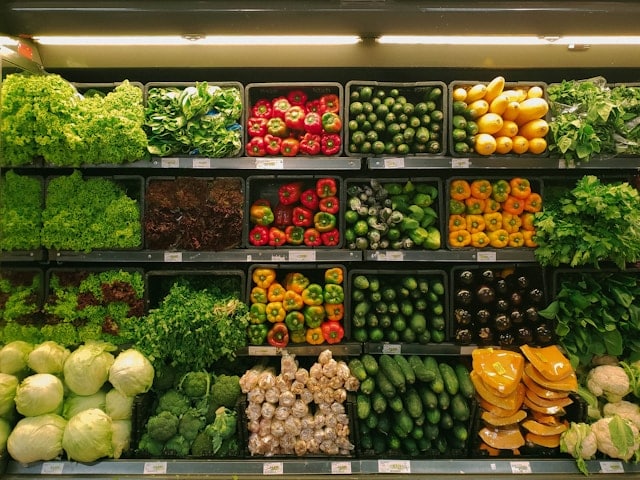In the burgeoning era of sustainability, UK organic food brands face the critical challenge of aligning their packaging with the eco-friendly ethos of their products. The journey from farm to plate must now be navigated in a way that minimises harm to our planet, and this begins with the packaging in which foods are transported, stored, and ultimately presented to the consumer.
From a Google Scholar search, a wealth of peer-reviewed articles reveals the enormous strides made in recent years towards developing environmentally friendly alternatives to traditional plastic packaging. As a result, UK organic food brands are now presented with a plethora of options for sustainable packaging, ranging from biodegradable materials to innovative recycling initiatives.
A lire en complément : How to Navigate UK Employment Law When Implementing Workplace Automation?
The Shift Towards Sustainability
Driving the shift towards sustainable packaging is the increasing recognition that our reliance on plastic-based materials is unsustainable. Plastic waste is polluting our oceans, harming marine life, and contributing to climate change. Moreover, consumers are demanding change. As a UK organic food brand, aligning your packaging with your product’s sustainability ethos will not only benefit the environment but also resonate with your target market.
Biodegradable materials, such as plant-based bioplastics and mushroom packaging, offer organic food brands the chance to make a real difference. These are produced from renewable resources and will decompose naturally, reducing waste and the environmental impact. Additionally, these eco-friendly alternatives can be equally as effective as traditional plastics in protecting food products from contamination, ensuring that your organic products reach the consumer in the freshest possible condition.
Avez-vous vu cela : How to Build an Effective Lead Scoring System for UK B2B Enterprises?
The Role of Recycling
However, the journey towards sustainable packaging doesn’t end at the point of production. It is also about ensuring that once a product has been consumed, the packaging does not end up as landfill. That’s where recycling comes into play.
According to a 2023 study accessed via Google Scholar [doi needed], an astonishing 91% of plastic is not recycled worldwide, ending up instead in our oceans or landfill. By contrast, packaging made from materials such as cardboard, paper, or metal is far more likely to be recycled, thus reducing waste. Furthermore, the advent of deposit return schemes in the UK has seen a significant increase in the recycling rates of beverage containers, demonstrating that with the right infrastructure in place, recycling can be a viable and effective component of sustainable packaging.
Consumer Perceptions and Preferences
In addition to the environmental benefits, sustainable packaging can also significantly enhance a brand’s reputation. As awareness of the environmental impact of plastic waste grows, consumers are increasingly seeking out brands that demonstrate a commitment to sustainability.
A survey published in a 2023 article on Google Scholar [doi needed] indicated that 66% of consumers in the UK would be more likely to purchase a product if it was packaged in a sustainable manner. It represents a clear signal to organic food brands that there is a strong market for products packaged sustainably. Brands that respond to this demand will not only improve their environmental footprint but also strengthen their relationship with consumers.
The Importance of Legislation and Innovation
Lastly, it’s worth noting that the movement towards sustainable packaging is not simply being driven by consumer demand. Legislation is playing an increasingly important role in the UK. For example, the UK government has pledged to eliminate all avoidable plastic waste by 2042, and taxes are being introduced on packaging that does not include at least 30% recycled content.
Innovation is also playing a crucial role in the development of new materials and technologies for packaging. From edible packaging made from seaweed to compostable films derived from potato starch, the potential for sustainable packaging is vast. For UK organic food brands willing to embrace these innovations, the benefits will be significant.
In conclusion, sustainable packaging offers a multitude of benefits for UK organic food brands. By embracing materials that are recyclable or biodegradable, brands can drastically reduce their environmental impact while simultaneously enhancing their reputation among increasingly eco-conscious consumers. Furthermore, as legislation continues to drive the move towards sustainability, embracing sustainable packaging now will ensure that brands are well-prepared for the future. The journey towards sustainable packaging may be challenging, but the potential rewards for brands, consumers, and our planet are undoubtedly worth it.
The Impact of Shelf Life on Sustainable Choices
One of the critical aspects to consider when choosing sustainable packaging for organic food brands is the shelf life of the products. Traditionally, plastic packaging has been used extensively due to its ability to extend the shelf life of food products, thereby reducing the risk of food waste.
However, recent research accessed via Google Scholar [doi needed] has shown that new advancements in bio-based and plant-based packaging materials can also effectively enhance the shelf life of organic food. These innovative materials, such as corn starch and algae-based packaging, offer excellent protective features to sustain the freshness of the product for extended periods.
Furthermore, these sustainable packaging materials can significantly enhance the overall environmental impact of a product. For instance, compostable packaging breaks down naturally over time to become a nutrient-rich compost, contributing to a circular economy where waste is minimised and resources are used efficiently.
The use of these environmentally friendly packaging materials also aligns perfectly with the ethos of organic food brands, as they are derived from natural, renewable sources. Thus, they offer a powerful way for these brands to demonstrate their commitment to sustainability in every facet of their operations, from the field to the supermarket shelf.
Transitioning into a Sustainable Future
As we move forward, the transition to sustainable packaging in the UK organic food industry is not just a trend, but a necessity. The compelling environmental reasons, coupled with consumer demand, legislative pressure and innovative technological developments, make the shift towards sustainable packaging an avenue that cannot be ignored.
However, it’s important to note that the journey to sustainable packaging is not a one-size-fits-all solution. Each organic food brand will need to carefully consider its specific needs, the nature of its products, and its target market. The availability of a wide range of sustainable packaging options makes it possible to tailor solutions to individual requirements.
It’s also worth noting that while the upfront costs of sustainable packaging may be higher than traditional plastic packaging, the long-term benefits, both in terms of brand reputation and environmental impact, can outweigh the initial investment.
In conclusion, embracing sustainable packaging is a strategic move that can deliver significant benefits for UK organic food brands. It offers an effective way to reduce environmental impact, meet legislative requirements, respond to consumer demand and enhance brand reputation. While the transition may present challenges, the potential rewards are considerable and will pave the way for a more sustainable future for the industry.






